In The Community
I am always shocked when I hear someone say they’re not a feminist or even say that the feminist movement is this crazy new world ideology. It isn't a "trend" or something that is done to be "edgy."
The feminist movement is fighting for human lives and for the rights that we should all have when we’re born.
Events like the overturning of Roe v. Wade are more than enough proof of that. If a human being losing autonomy over their own body doesn't alarm you, I don't know what will.
In simple terms, feminism advocates for equality between men and women in all aspects of life. The concept has gotten lost for many that choose to not educate themselves on the subject and not only believe, but also spread the false notion that feminism is fighting for the superiority of one gender.
The feminist movement is not an attack on men, far from it. Feminism views all people as human beings deserving of a quality life as it fights against social injustices prevalent in our society.
There's nothing out of this world about the feminist movement; after all, one would think that there’s no reason for one gender to be lesser than the other in our society when we are all humans. But our world was built upon patriarchy, and men have been the ones in positions of power for far too long.
And yes, the movement is flawed, mainly where it concerns women of color and non-cisgender women. Women of color, queer, and trans women fight for more than just gender equality, and we can't be truly equal if we solve one issue but not the others.
The effect of poverty, racism, systematic oppression, and homophobia on women of color is also why the concept of intersectionality in feminism was introduced. Coined in 1989 by Kimberlé Crenshaw, she introduces the concept as "a prism for seeing the way in which various forms of inequality often operate together and exacerbate each other." When different forms of discrimination overlap, we can't just ignore one for the other, because if we do no equality has been achieved.
The feedoms and struggles of women in the U.S. look different for women in other countries. We need feminism because young girls and women are still fighting for fundamental human rights in many parts of the world.
In most countries in Latin America, for example, abortion is still heavily penalized, and reproductive rights for women are practically nonexistent. With some of the highest poverty rates in the world, access to contraception and sex education is not a given.
Femicide prevails across the world. About 66,000 women and girls are violently killed annually, accounting for approximately 17 percent of all victims of intentional homicides. A report published in 2016 by the Small Arms Survey, showed that "among 25 countries with the highest rates of femicide in the world, 14 are from Latin America and the Caribbean."
El Salvador and Honduras stand out with rates of more than ten female homicides per 100,000 women. The level of violence affecting women in El Salvador and Honduras exceeds the combined rate of male and female homicides in some of the 40 countries with the highest murder rates in the world, such as Ecuador, Nicaragua, and Tanzania.
Body autonomy and violence are just a few of the issues in the fight for equality. Phrases like, "I'm not one of those crazy feminists" or "women aren't oppressed," need to be used as teachable moments rather than just brushed off casually as just another knock on women. The more we destigmatize the word, the more we can actually achieve understanding from those who are willing to listen and learn.
Bolivia’s western Andes is known for its deep valleys, towering mountains, and breathtaking landscapes. However, the most interesting thing about it is that it’s home to a remarkable group of women challenging long-standing gender norms.
Bolivian “Cholitas,” known for their iconic pollera skirts, aguayo embroidered cloth, and high bowler hats, are empowered Indigenous women carving out spaces for themselves that were once inaccessible. Through mountain climbing, skateboarding, and martial arts, they’re defying patriarchal structures and reclaiming their identities.
Mountain climbing: Cholitas conquering heights
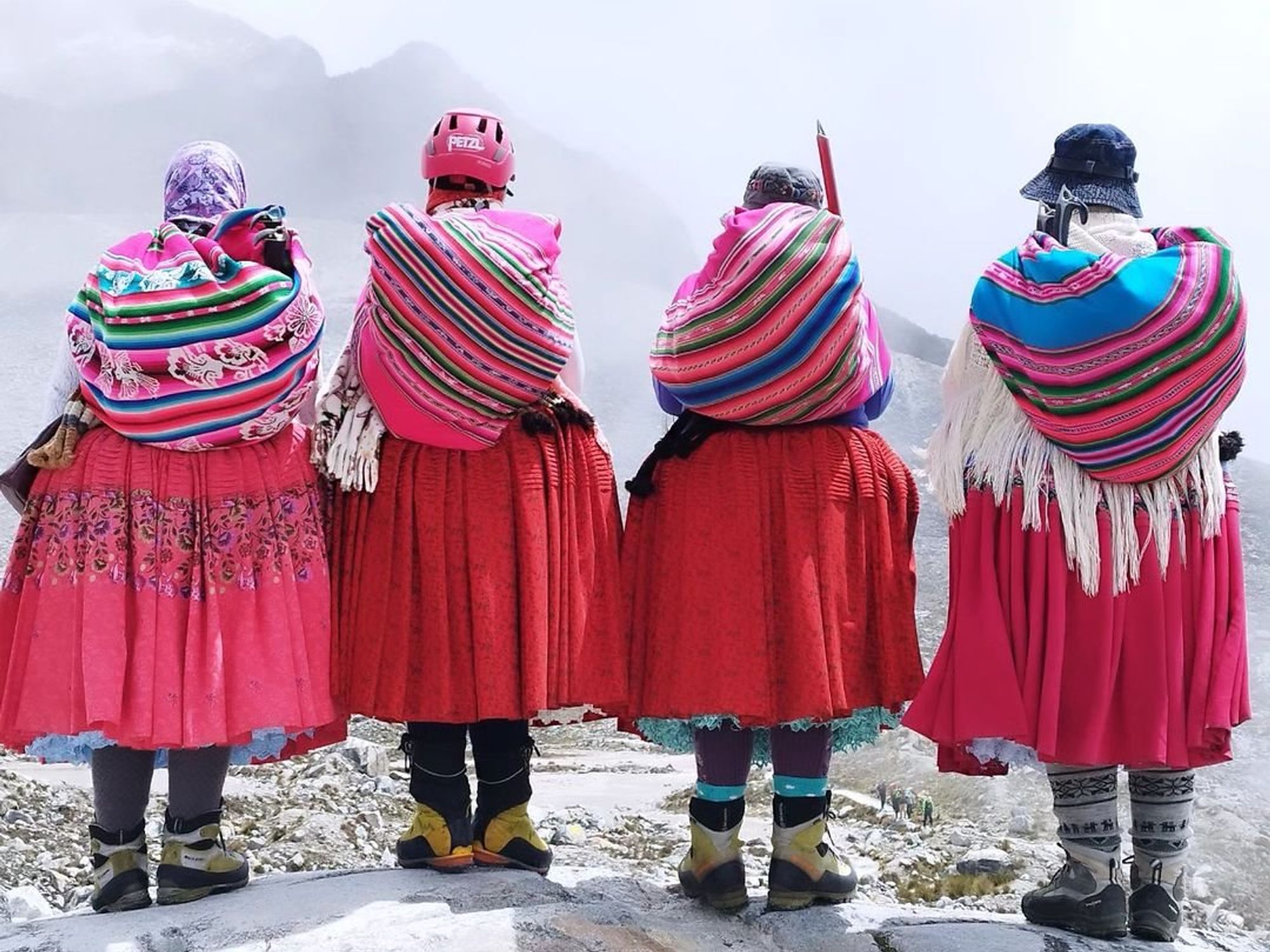
Photo by cholitasescaladoras on Instagram
Cecilia Llusco, an Aymara woman, is one of many Cholitas leading the charge against societal conventions. Raised in Bolivia’s mountains, Llusco’s connection with them runs deep. From her early years assisting her father, a high mountain guide, to going on her own climbing journeys, she’s known for her resilience and determination. She has become a high mountain guide, following in her father’s footsteps while still making the road her own.
The Cholita Climbers
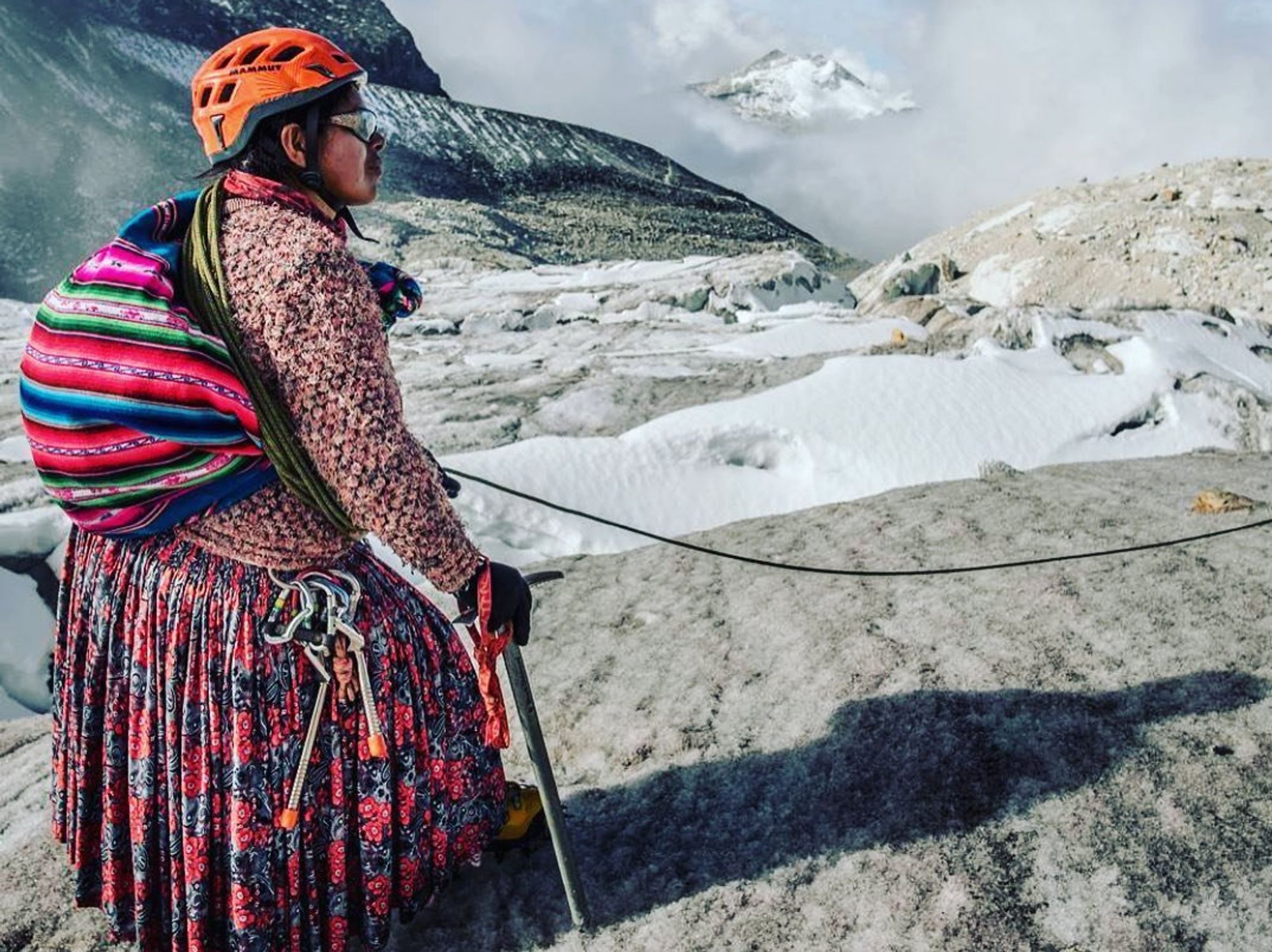
Photo by cholitasescaladoras on Instagram
“The Cholita Climbers,” as they're known, refuse to be bound by traditional gender roles. Scaling Huayna Potosí and setting their sights on Everest, they're not just climbing mountains; they're shattering stereotypes. Lidia Huayllas, the group's elder stateswoman and deputy mayor, is leading by example, inspiring generations of women to pursue their dreams despite the odds. The journey of The Cholita Climbers is not just defined by an impressive list of physical feats, but also by a deep sense of cultural pride.
Skateboarding: Cholitas redefining spaces
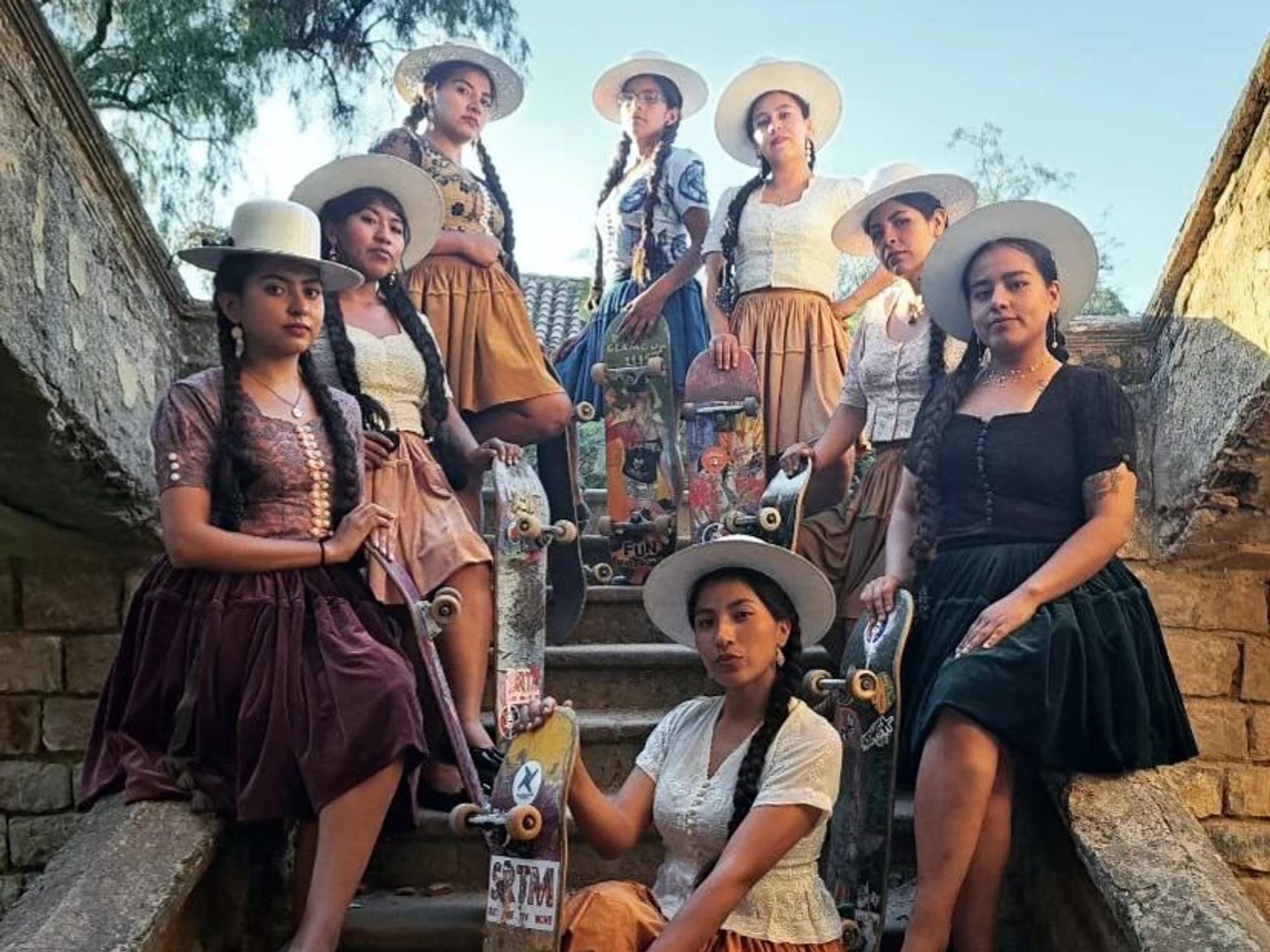
Photo by imillaskate on Instagram
In the streets of Cochabamba, the Imilla Skate collective stands out for all the right reasons. Led by Dani Santiváñez, this group of bold young women is rewriting the script of skateboarding. With their vibrant, traditional clothes, they challenge conventional ideas of femininity and athleticism, presenting a much more interesting and empowering alternative.
The Imilla Skate collective
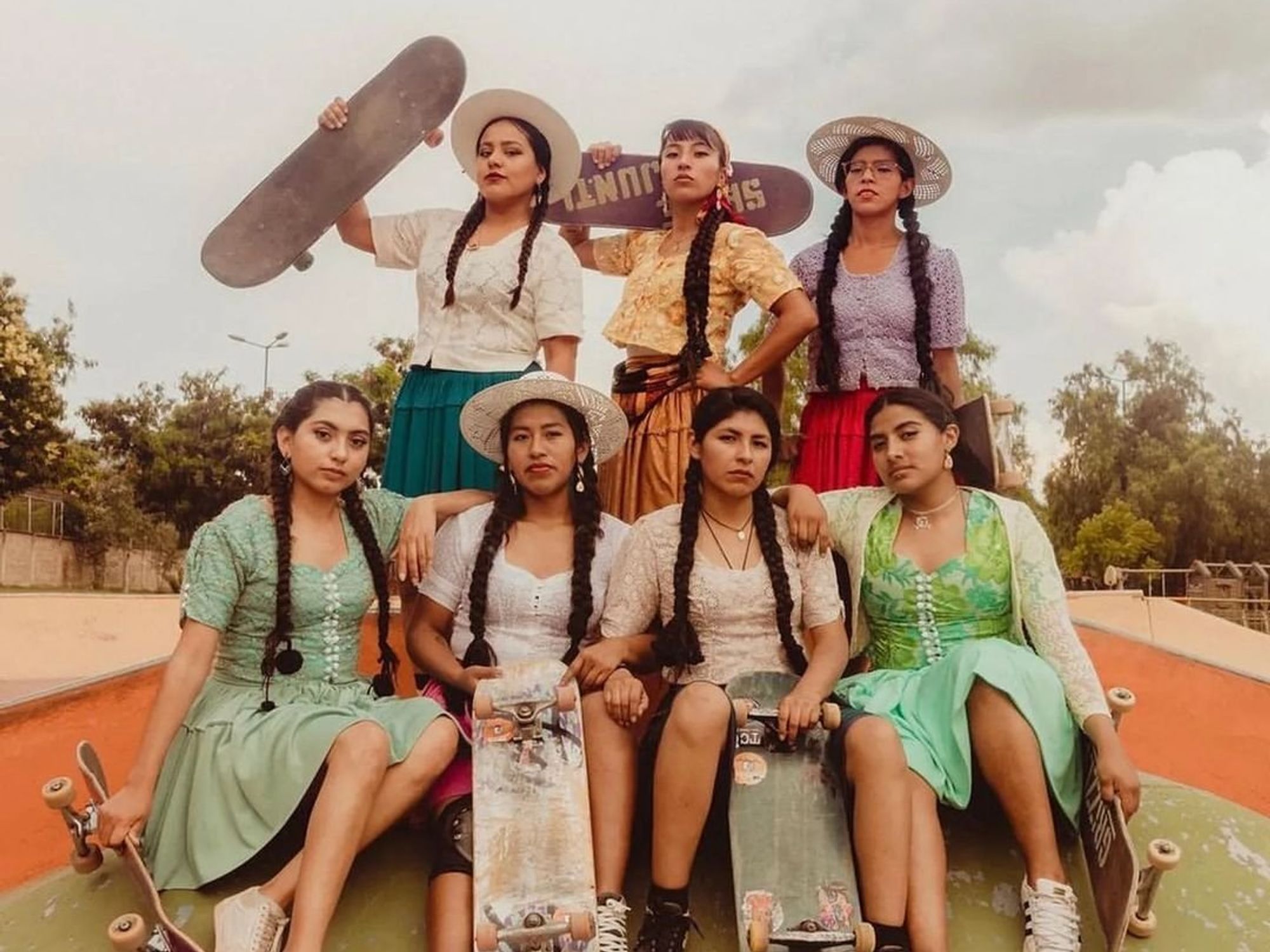
Photo by imillaskate on Instagram
The Imilla Skate collective has transformed neglected spaces, making them vibrant and exciting again. They’re not just skaters, they’ve reclaimed their right to public spaces and fostered strong community bonds. Their influence even goes beyond the streets of Cochabamba, rippling across the nation. Their message is clear: women belong in skate parks, and their presence is non-negotiable. By taking this stance, they're helping amplify indigenous voices and reshape perceptions of what it means to be a skateboarder.
Self-defense: Cholitas against gender-based violence

Photo by warmipowerbo on Instagram
Faced with the issue of gender-based violence, Bolivian Cholitas are refusing to stay silent any longer. Lidia Mayta, a woman who was violently attacked by would-be robbers at her front door, has turned to martial arts as a tool for empowerment. Not only of herself but of other women in the community who are tired of being victimized and afraid.
In Bolivia, over 53% of women experience physical or sexual violence. Despite the high prevalence of gender-based violence, prevention services often lack knowledge about disabilities, limiting access to information and care, and leaving women to fend for themselves. Shockingly, only 1% of gender-based violence cases are prosecuted and convicted.
Warmi Power taekwondo studio
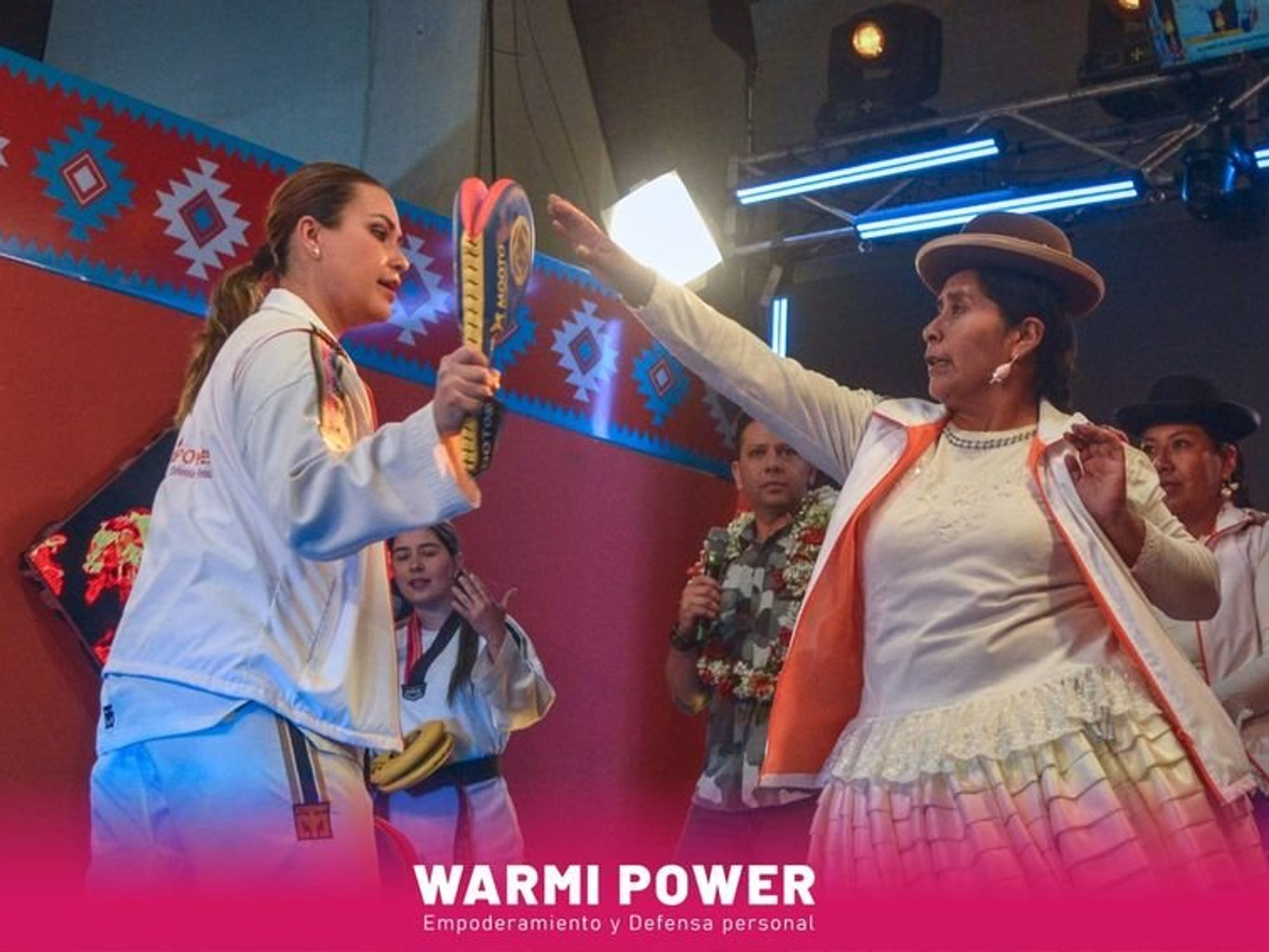
Photo by warmipowerbo on Instagram
In this context, taekwondo studios like Warmi Power offer a sanctuary for women to learn self-defense techniques and reclaim their sense of agency. Beyond physical training, these spaces serve as platforms for solidarity and collective action against gender-based violence. Mayta found this space to learn taekwondo and she’s now one of their main facilitators, dedicated to introducing women to the transformative power of martial arts.
Self-defense techniques

Photo by warmipowerbo on Instagram
By teaching women with the skills to defend themselves, organizations like Warmi Power are challenging the culture of impunity and fostering a culture of accountability. Their message is clear: violence against women will not be tolerated, and every woman has the right to feel safe in her community.
Bolivian Cholitas are leading a new chapter in their history
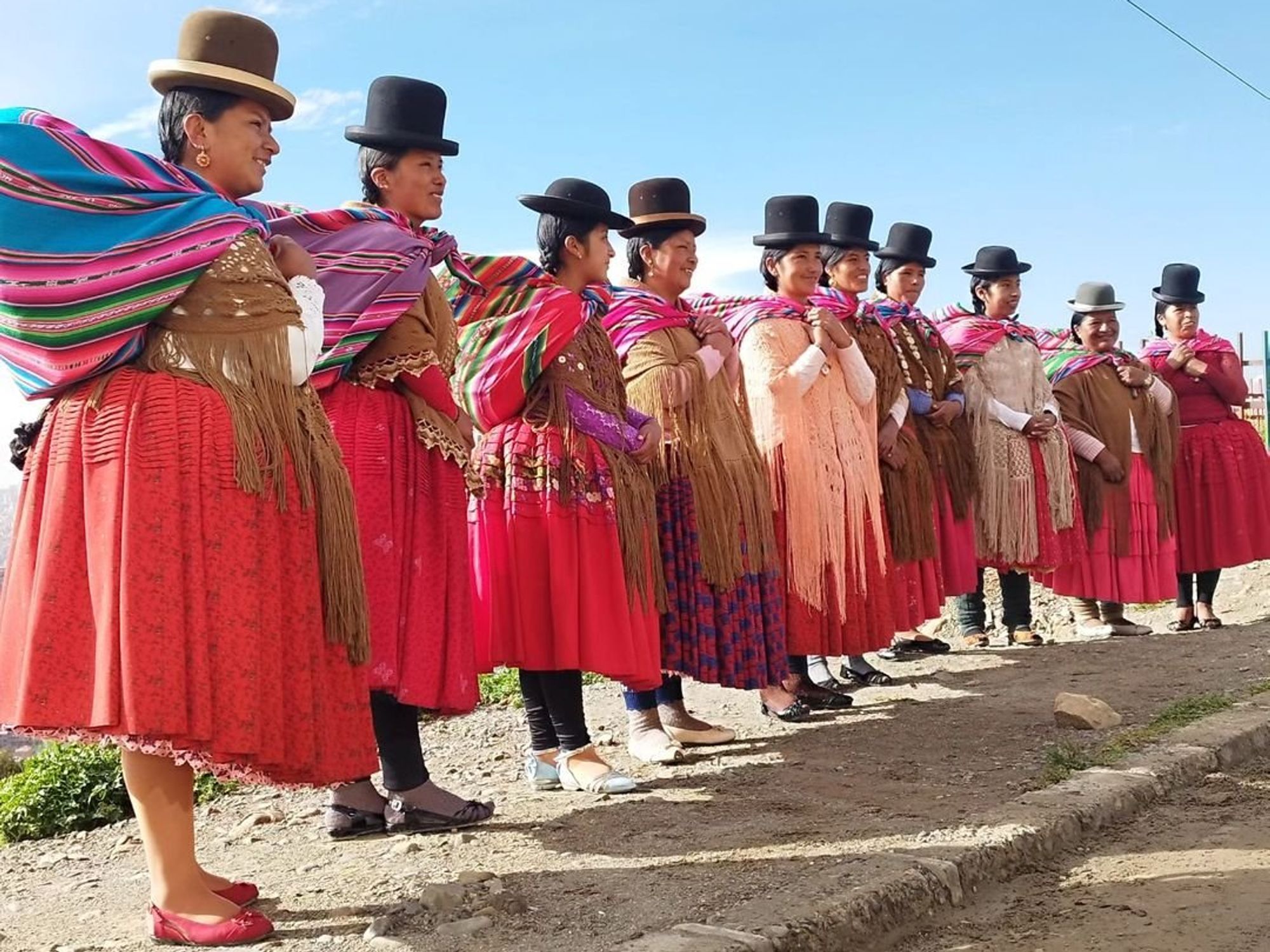
Photo by cholitasescaladoras on Instagram
The stories of Bolivian Cholitas scaling mountains, mastering skateboards, and learning self-defense are not just individual victories; they’re part of a larger change that will ripple for generations to come. Through their actions, these women are rewriting the script of gender norms and reclaiming their rightful place in society. As they continue to challenge stereotypes, they inspire communities in Bolivia and around the world to rise and take up space. Bolivian Cholitas are shaping history, one challenge at a time.
- Las Patronas de La Bestia: A Brief History ›
- The Story Behind Imilla Skate: Bolivia’s ‘Cholita’ Skater Girls ›
- Cholita Mountain Climbers Defy What Climbing Looks Like ›



